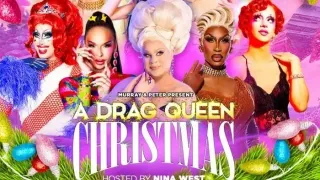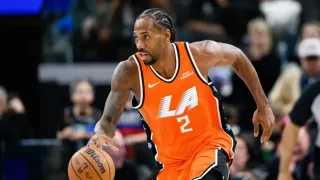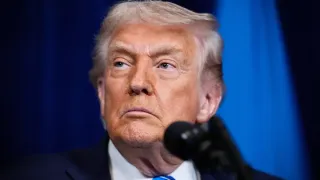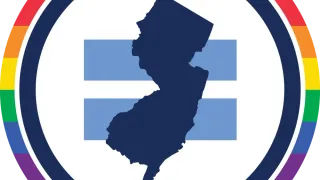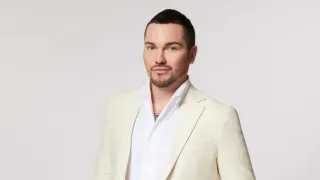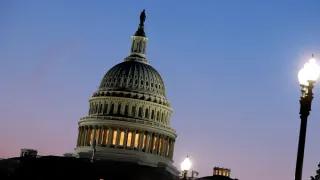May 7, 2017
Risk
Jocelyn Noveck READ TIME: 3 MIN.
With all the weighty and momentous issues raised in "Risk," Laura Poitras' fascinating, thorny, and remarkably timely documentary on Julian Assange, one of the more subtly illuminating scenes is about something as inconsequential as a haircut.
The WikiLeaks founder is getting his locks trimmed, and the rapt, loving attention being paid to this process by co-workers in the room - who, like a team of Hollywood stylists, take turns with the scissors and offer suggestions - makes it look like he's about to go accept a lifetime achievement Oscar. Poitras may have included this scene as a rare light moment - a counterpoint to everything else - but it also gives us a sense of the man and his relationship with those who work for him.
It also shows, as do so many scenes here, the seemingly limitless access Poitras had to her subject, whom she began filming about six years ago. Just as in another recent, also excellent documentary, "Weiner," a moment comes where you just think, "Whoa, how was she allowed to do this?" Indeed, Poitras says the same thing. "Sometimes I can't believe what Julian allows me to film," she says in voiceover. "It's a mystery to me why he trusts me, because I don't think he likes me."
Whether he likes her or not, and whatever the changing nature of their relationship - there's been talk of a falling out, but it's murky - the leeway Assange gave Poitras is what elevates this film to must-see viewing. Yes, Poitras, an Oscar winner for "Citizenfour" about Edward Snowden, seems less aggressive at times than she could be in investigating what makes Assange tick. Lady Gaga, in a bizarre cameo, is freer with her questions. But it's hard to quibble with the result.
And it's hard to imagine a documentary could be more timely. On Tuesday, three days before the film's opening, Hillary Clinton came out and said that but for two factors - FBI director James Comey, and WikiLeaks - she'd be president. As Poitras makes sure to point out in the final minutes of her film - one of its last lines is a newscaster announcing Donald Trump's election - Assange has become a key figure in the narrative of the 2016 campaign. And she has gotten closer to him than any filmmaker is ever likely to. Editing right until the end, and nearly a year after a version screened at Cannes, Poitras even rushed last week to incorporate remarks by Attorney General Jeff Sessions that arresting Assange is a priority.
Assange, of course, is still living in the Ecuadorean Embassy in London, where he took refuge nearly five years ago to avoid being extradited to Sweden, where he'd been accused of rape, accusations he denies. He has said he fears ultimately being extradited to the United States and being tried for espionage. In March, WikiLeaks released nearly 8,000 documents that it says reveal secrets about the CIA's cyberespionage tools. Previously it published hundreds of thousands of State Department cables and U.S. military logs from Iraq and Afghanistan.
It's with the sex accusations that the film gets thorny - that is, if you're trying to decide either how Poitras really feels about her subject. The scenes that touch upon Assange's attitude toward these accusations present him in a light that can only be deemed unflattering, even if you're in the camp that admires much else about him.
We see, for example, Assange being counseled by his attorney, Helena Kennedy, in "getting your mind around using language that doesn't sound hostile to women." He argues that the whole affair is "a thoroughly tawdry radical feminist political positioning thing." Her frustration is palpable. Later, Assange tells Poitras that if the two women involved pursue a court case, "they'll be reviled forever by a large section of the population." His self-image is clearly healthy. At another point he tells Poitras that his "profile" didn't really take off, globally, until the sex case.
It's hard to reconcile these scenes with the reflective man who tells Poitras: "Every day you live your life, you lose another day. You don't have that many. So if you're not fighting for things you care about, then ... you are losing."
The current version of "Risk" is said to be much less flattering to Assange than the early one, and Poitras is upfront about the contradictions. "This is not the film I thought I was making," she says. "I thought I could ignore the contradictions, I thought they were not part of the story. I was so wrong. They're becoming the story."
However you feel about Assange - and about risk, secrecy, and so many other things touched on by this film - it's a story that demands watching.
